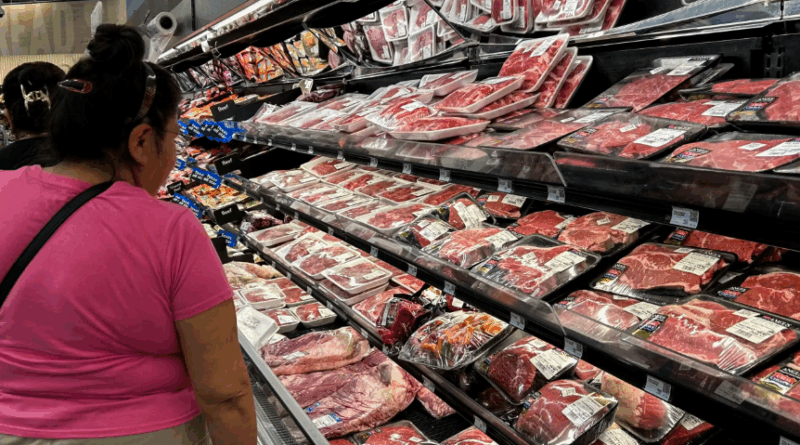Tyson Foods To Shutter Nebraska Beef Plant Amid Cattle Shortage, Trump Blames ‘Industry Manipulation’
Tyson Foods will close its Lexington, Nebraska, beef processing plant in January, a move that will eliminate over 3,200 jobs and send shockwaves through America’s cattle heartland. The company cited historic lows in U.S. cattle supply — the worst in nearly 75 years — as the driving force behind the shutdown.
This marks a critical moment for the beef industry. The Lexington plant alone processed about 5,000 cattle per day, making up nearly 5% of the national slaughter capacity. Its closure, alongside a scale-back at Tyson’s Amarillo, Texas, facility, will significantly reduce available U.S. processing power just as meat prices are soaring.
Trump: ‘They’re Manipulating the Market’
President Donald Trump weighed in on the crisis last month, accusing meatpacking giants of colluding to drive up prices and hurt American ranchers. He called for an investigation by the Department of Justice into possible market manipulation.
On Thursday, Trump took additional steps to ease domestic supply strains by removing 40% tariffs he had imposed on Brazilian food imports earlier this summer. The move angered some ranchers but was aimed at bringing in more affordable beef used in hamburger meat. The president has also pursued expanded imports from Argentina and other South American nations.
Still, Trump has made it clear that he views American ranchers as essential to the nation’s food security. His administration has floated subsidies and support programs to help smaller cattle operations recover from the current drought-fueled downturn.
Years-Long Drought Guts Herds
The underlying issue stems from a brutal multi-year drought that decimated pastures and spiked feed costs, prompting ranchers across the country to sell off large portions of their herds. That herd liquidation has created a ripple effect, resulting in cattle supplies so tight that Tyson and other processors now find themselves paying sky-high prices just to stay in operation.
Tyson reported a staggering $426 million loss in its beef division in the last fiscal year, after losing $291 million the year before. The company now projects it could bleed another $400 million to $600 million in 2026. That’s a dramatic reversal from the record profits meatpackers enjoyed during the COVID-19 pandemic, when supply disruptions allowed them to command premium prices.
Rural Communities Hit Hard
Lexington’s population of 10,000 will bear the brunt of the decision. Commodity experts like FuturesOne’s Matt Wiegand say the closure will devastate not only workers but also local feedyards that rely on the plant to process cattle. Sen. Deb Fischer (R-NE) blasted Tyson’s decision and said the company had profited at the expense of struggling ranchers in recent years.
“It’s no secret that just a few years ago, packers like Tyson were making windfall profits while the rest of the industry was continuously in the red,” Fischer said. “This will be a crushing blow to rural Nebraska.”
In Texas, Tyson’s Amarillo plant will reduce operations to a single full-capacity shift, affecting roughly 1,700 workers. Combined, the two moves reflect Tyson’s decision to consolidate production in response to an increasingly volatile market.
Outlook: Pain Ahead Before Recovery
Even as some ranchers begin slowly rebuilding herds, it takes at least two years to raise full-grown cattle — meaning relief will be delayed. Until then, prices are expected to remain high at grocery stores and restaurants, with lower-income families hit hardest.
President Trump has vowed to do what he can to stabilize the market, reduce consumer costs, and rein in the meatpacking industry’s influence. But with a limited domestic herd and tight global supplies, the road to balance will be a long one.

